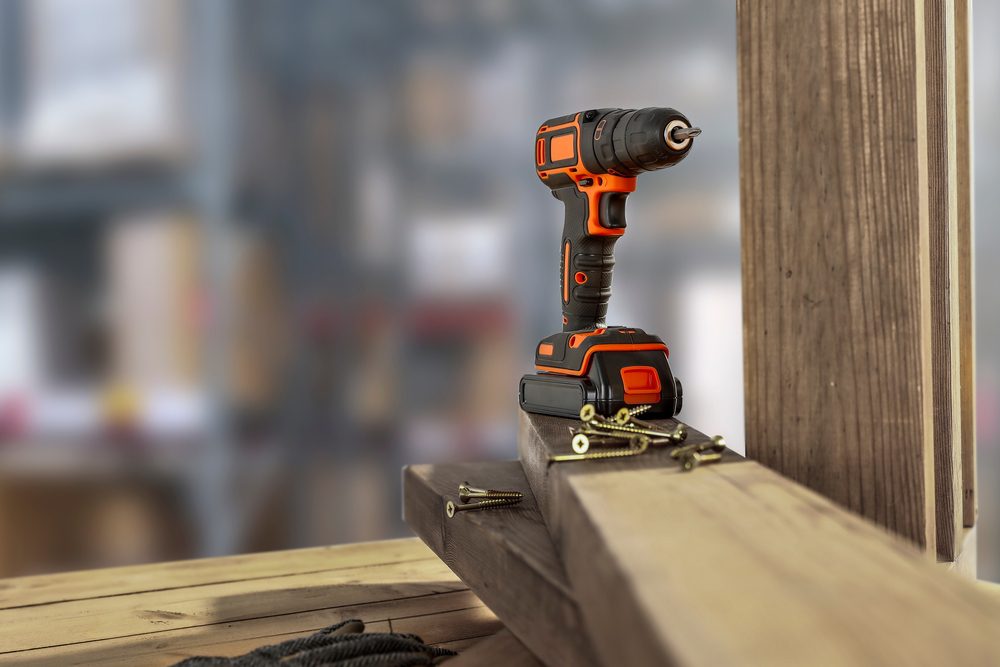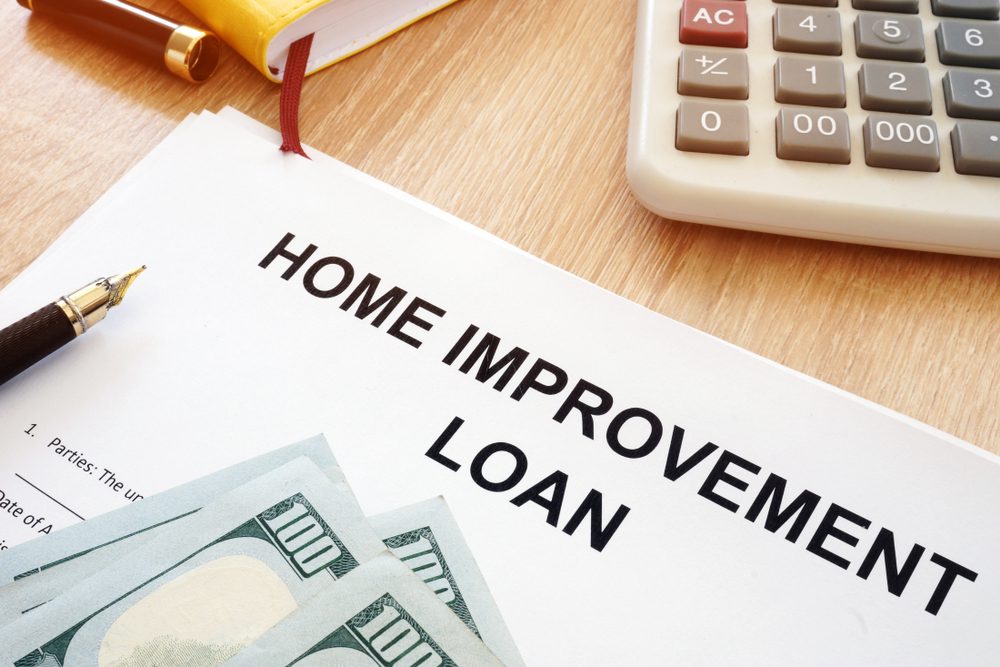
Have you ever heard about free home repairs?
Being a homeowner is definitely one of the greatest things you could possibly experience, but as beautiful as it is, there are some downsides too. Of course, you’ve put your whole heart and soul into making your home as welcoming and as cozy as it can be, but the truth is that things aren’t meant to last a lifetime.
Roofs might leak, furnaces break, windows might get smashed, and kitchen appliances decide to stop working. What’s even worse is that all of these can happen without a warning, so you end up being stressed out and panicked about how many repairs you’ve got to take care of.
Even though these things can be pretty expensive, there’s no need to worry, because there’s always help available, if you know where to look for it. There are a lot of local and national non-profit organizations and federal home improvement loan programs that want to help people and offer big discounts or even free home repairs to those who fit their profile.
Besides that, they also offer low-rate fixed-interest loans that can help people manage their problems and take care of their repairs as smoothly as possible. These programs are pretty great, especially for homeowners who have a hard time facing huge repair bills.
In conformity with a report from the Federal Reserve, 12% of American adults wouldn’t be able to pay their bills if they faced a sudden $400 expense. Having to decide between paying the mortgage or making a few necessary house repairs isn’t an easy choice, and we believe that no one should be in this situation.
However, there’s still some light at the end of the tunnel. We’ve talked to a few experts about different programs that are meant to give discounts or even free home repairs to American homeowners. Make sure to read along with us until the end of this article to see if you qualify for any of these plans.

What are the average prices?
As you already know, every home is different, which means that the costs for the repairs can vary from one another. On the other hand, we know that you want to be informed and have a general idea of what to expect. We’ve done a bit of research and we found the average prices of different home repairs that are pretty common. Here they are:
- Roof repair: roughly $650 and approximately $6,600 to replace;
- Garage door: $210 repair and between $600 to $1,500 to replace;
- Water heater: $480 repair and $1,100 to replace;
- Window glass replacement: $250;
- Furnace: $270 repair and $4,300-4,400 to replace;
- Boiler: $350 repair and $4,000 to replace.
There are many factors that can influence the final cost of home repairs and even replacements, such as the age and condition of the home, the age and condition of the items that need repairs, and the people you’ve hired to do the job. To make sure that you get the best deal possible, which means an affordable price and some high-quality work, you’d better talk to at least 2 or 3 providers.
…Now that you have a general idea of how much the costs can be, it’s time to know more about the most popular Home Repair Assistance Programs!
1. 203(k) Rehabilitation Mortgage Insurance Program
This program can be used at the same time as the Title 1 Property Home Improvement Loans and gives homeowners the ability to borrow large amounts of money, up to $35,000, through their mortgage for home improvements or repairs on a single-family estate. The exceptional thing about this program is that it’s also available for people who just bought a house and want to give it a makeover before moving in.
If you want to qualify for this program, the cost of the repairs should be at least $5,000 and the property must meet specific structural standards and energy efficiency. However, this kind of loan can only be used on residential structures.
…All the applications for this program must be sent through an FHA-approved lender!

2. HUD Title 1 Property Improvement Loans
Title 1 Property Improvement Loans is a program endorsed by the U.S. Department of Housing and Urban Development (HUD) and encourages private lenders to offer home improvement loans that can be used for both small and large repairs. The maximum amount for single-family homes under these fixed-rate loans is $25,000, while the maximum amount for multifamily homes under these loans is $60,000.
Don’t forget that the money isn’t lent by HUD themselves. They only assure private lenders by offering them protection in case the borrower can’t repay. This encourages private lenders to make private loans for home renovations and repairs available to any mortgage company, bank, saving and loan assistance organization, or credit union that can offer a Title 1 loan.
3. Home Modification Loans
In order to adjust their homes for safe use and independent living, seniors and people with disabilities might be able to obtain free or extremely affordable home repair grants and loans. These loans are provided by state and local organizations rather than the federal government. If you want to look for home modification loans by state and local region, go to the National Directory of Home Modification and Repair Resources.
Only elderly folks and people with disabilities are eligible for these types of repair loans and grants, and the particular requirements can vary depending on the agency. It’s important to remember that any desired repair must be primarily focused on enhancing the space’s safety and habitability, and some fixes might not be applicable.
4. VA Rehab and Renovation Loans
If you happen to be a veteran and you want to obtain a loan, we have good news for you! The U.S. Department of Veterans Affairs offers an exclusive type of loan option for veterans who need money to renovate or repair their homes.
These services, which are similar to the 203(k) Rehabilitation Mortgage Insurance Program, work by capping out loans at the property’s expected value after the repair or improvement is completed.VA Rehab & Renovation Loans, like all VA Loans, don’t require a down payment or mortgage insurance. However, these loans are different from conventional VA loans in that they can only be used for house renovations and repairs, and home purchases are not allowed.
In order to be eligible for this program, borrowers must use their house as their principal residence and satisfy the basic standards for VA loans. In addition to that, funding must be allocated for home repairs and improvements that enhance the property’s livability, usability, and/or safety, rather than just its exterior.
5. Section 504 Home Repair Program
The fifth plan on our list is the 504 Home Repair Program, which offers loans to homeowners who need money to repair, improve, and modify their homes. They provide grants too, but only to older people who absolutely need free home repairs to get rid of a safety or health hazard.
These types of loans have a very low fixed rate, only 1%, and the repayment period is available for 20 years. The maximum loan you can obtain with a program like this is $20,000, and the maximum grant is $7,500.
In order to qualify for a loan like this, all applicants must be homeowners of the property, must live there too, and must prove that they aren’t able to obtain credit elsewhere. In addition to that, their household income must be below 50% of the average area income. As for grant qualification, applicants must be at least 62 years old and unable to repay a repair loan.

6. Community plans
You might be eligible for free or discounted home repairs through regional community initiatives depending on where you live. Get in touch with your county or local government’s housing department or with your state’s HUD office to learn more about the options in your area.
You might be able to uncover particular incentives for making energy-efficient improvements to your home, such as installing solar panels or learning about potential tax credits for the modifications that you make. All of these are in addition to cash loans and grants for home repairs and renovations.
7. Ask charities for help
If you want to obtain some free home repairs, you should try reaching out to a local or national charity. Some of the charities that offer free home repair assistance are:
- Rebuilding Together;
- Volunteers of America;
- Habitat for Humanity’s Home Preservation Program;
- Area Agencies on Aging (for seniors);
- Operation Homefront (for veterans).
There are also plenty of religious organizations that might be available to offer charitable help for home repairs and improvements as well, so make sure to reach out to them.
…Do you want to know more about taxes and owning a house? Check this article out: 7 TAX BREAKS FOR HOMEOWNERS AND HOME BUYERS!









